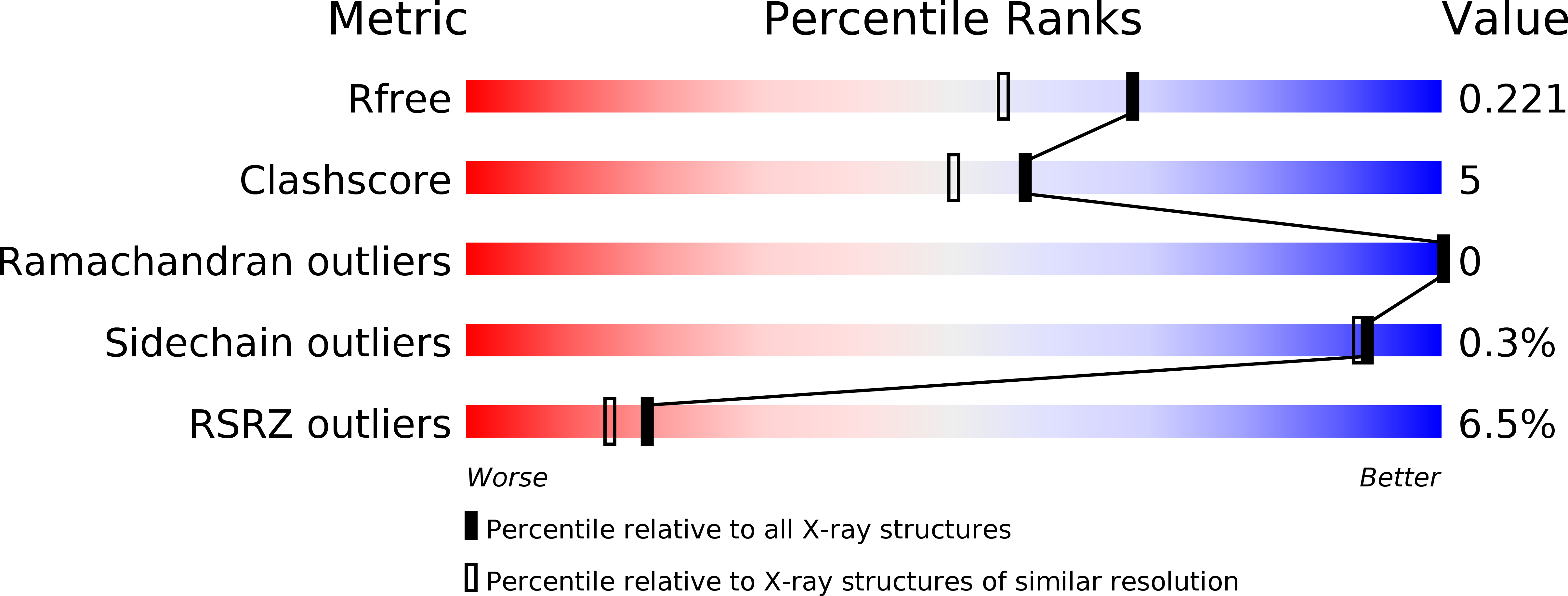
Deposition Date
2018-02-22
Release Date
2018-05-23
Last Version Date
2024-01-17
Entry Detail
PDB ID:
6FTP
Keywords:
Title:
Crystal form 1 of Alpha1-antichymotrypsin variant DBS-II-allo: an allosterically modulated drug-binding serpin for doxorubicin
Biological Source:
Source Organism(s):
Homo sapiens (Taxon ID: 9606)
Expression System(s):
Method Details:
Experimental Method:
Resolution:
1.80 Å
R-Value Free:
0.22
R-Value Work:
0.19
R-Value Observed:
0.19
Space Group:
P 31 2 1


